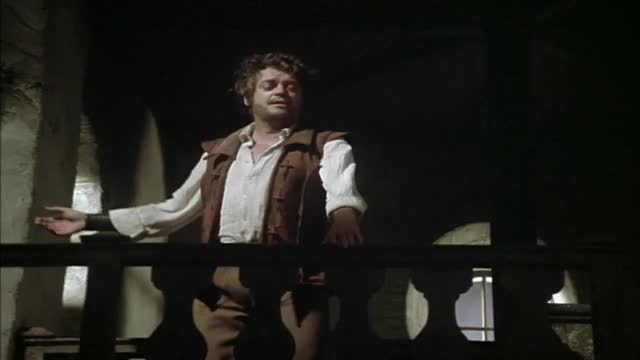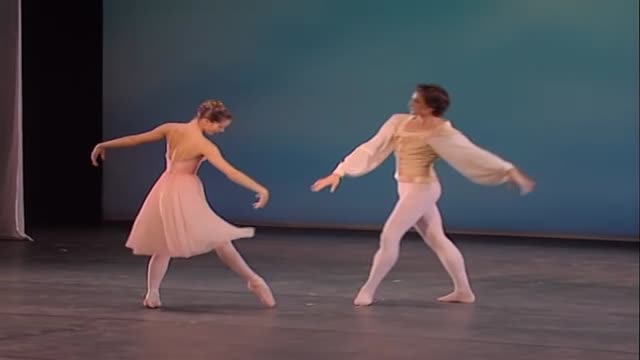Born Claire Mary Teresa Rawstron to a Maori father and Irish mother, Te Kanawa was adopted shortly after birth by Tom and Nell Te Kanawa, also of Maori and Irish extraction. Educated at St Mary’s College, Auckland, where she was taught singing by Sister Mary Leo, from her late teens onwards she was a popular singer in New Zealand, appearing frequently in the local media and making several recordings. Having begun as a mezzo she moved to singing as a soprano and in 1965 won the Mobil Song Quest, followed in 1966 by the Sun Aria Competition, which enabled her to enter the London Opera Centre in the same year. Here Te Kanawa studied until 1969 and was also a pupil of Vera Rósza. While still a student she sang Dido / Dido and Aeneas at Sadler’s Wells Theatre and Idamante / Idomeneo in concert at the Queen Elizabeth Hall (both in 1968) and Elena / La donna del lago at the 1969 Camden Festival.
Shortly afterwards Te Kanawa was contracted by the Royal Opera Company, appearing at Covent Garden during 1971 as a Flower Maiden / Parsifal, Xenia / Boris Godunov and the Priestess / Aida before achieving her major international breakthrough as the Countess / Le nozze di Figaro (which she had sung that summer with the Santa Fe Opera) in the first new production of Colin Davis’s era as music director. The stage director of this production, which was first seen in December 1971, was John Copley, who assisted her greatly. The following year she sang the same role with the Lyons and San Francisco opera companies and Desdemona / Otello with Scottish Opera. She made her debut with the Glyndebourne Festival as the Countess in 1973, the year in which she sang Micaëla / Carmen at the Royal Opera House in a new production conducted by Georg Solti, with whom she was to work frequently. At Covent Garden she went on to appear as Amelia / Simon Boccanegra, Donna Elvira / Don Giovanni (both 1973), Marguerite / Faust (1974), Mimì / La Bohème, Tatyana / Eugene Onegin, Fiordiligi / Così fan tutte (all 1976), the title role in Arabella and Rosalinde / Die Fledermaus (both 1977), Violetta / La traviata (1980), the title role in Manon Lescaut (1983), the Marschallin / Der Rosenkavalier (1985) and the Countess / Capriccio (1991).
At the Metropolitan Opera, New York Te Kanawa’s debut took place unexpectedly in 1974 as Desdemona, opposite Jon Vickers, when she substituted at a few hours’ notice for an indisposed Teresa Stratas (having already been contracted to sing the part at a later date). She went on to sing regularly at the Met until 1998, in a similar repertoire to that given at Covent Garden.
By the mid-1970s Te Kanawa had become an established international opera star, making a series of significant debuts at the Paris Opera (1975), the Australian Opera at Sydney (1976), La Scala, Milan (1978, Amelia), the Salzburg Festival (1979, Figaro Countess) and the Vienna State Opera (1980). She sang Elisabetta / Don Carlo in Chicago in 1980 and the title role in Tosca in Paris in 1982, but these were not parts to which she returned. Global fame was achieved in 1981 when she sang at the wedding of Prince Charles and Lady Diana Spencer; in the following year she was made a Dame of the British Empire. She also developed a considerable international popular following with an active recording career that included the recording in 1984 of West Side Story conducted by its composer Leonard Bernstein.
Later in her career Te Kanawa gravitated to the major Richard Strauss roles, singing with notable success the Marschallin at Vienna in 1992, the Countess / Capriccio at San Francisco in 1993 and the title role in Arabella at the Metropolitan Opera in 1994. After appearing in productions of Samuel Barber’s Vanessa at Monte Carlo (2001), Washington DC (2002) and Los Angeles (2004) she formally retired from singing in opera with performances of the Marschallin at Cologne in 2010, but promptly returned to the major international stages, notably the Met and Covent Garden, in the acting role of the Duchess of Krakenthorp / La Fille du Régiment.
The possessor of a beautiful lyric soprano voice, Te Kanawa was always careful not to push it beyond what was best for it. On stage she always looked poised and elegant. As an early mentor, the conductor James Robertson, noted, she possessed the gift of captivating her audiences and retained this throughout her career through many different media. She continues to support young singers from New Zealand through the work of the Kiri Te Kanawa Foundation.
© Naxos Rights International Ltd. — David Patmore (A–Z of Singers, Naxos 8.558097-100).
| Title | |
| MOZART, W.A.: Nozze di Figaro (Le) (Studio Production, 1976) | |

|
MOZART, W.A.: Nozze di Figaro (Le) (Studio Production, 1976)
Composer:
Mozart, Wolfgang Amadeus
Artists:
Begg, Heather -- Bohm, Karl -- Caron, Willy -- Ewing, Maria -- Fischer-Dieskau, Dietrich -- Freni, Mirella -- Kanawa, Kiri Te -- Kesteren, John Van -- Kraemmer, Hans -- Montarsolo, Paolo -- Perry, Janet -- Prey, Hermann -- Vienna Philharmonic Orchestra
Label/Producer: UNITEL |
| OPERA AND BALLET FAVOURITES (Royal Opera House, 1993) | |

|
OPERA AND BALLET FAVOURITES (Royal Opera House, 1993)
Composers:
Puccini, Giacomo -- Rachmaninov, Sergei -- Rimsky-Korsakov, Nikolay Andreyevich -- Tchaikovsky, Pyotr Il'yich
Artists:
Barlow, Stephen -- Benjamin, Leanne -- Burchuladze, Paata -- Bussell, Darcey -- Collier, Lesley -- Cooper, Adam -- Deller-Takemura, Maria -- Domingo, Placido -- Downes, Edward -- Durante, Viviana -- Fisher, Jonathan -- Hvorostovsky, Dmitri -- Kanawa, Kiri Te -- Kumakawa, Tetsuya -- Leiferkus, Sergey -- Loots, Iohna -- McGorian, Elizabeth -- Mosley, Philip -- Mukhamedov, Irek -- Royal Ballet, Covent Garden -- Royal Opera House Orchestra, Covent Garden -- Sansom, Bruce -- Solymosi, Zoltan -- Tchaikovsky, Pyotr Il'yich -- Tomowa Sintow, Anna -- Vanderspar, Christopher -- Wordsworth, Barry
Label/Producer: Opus Arte |
